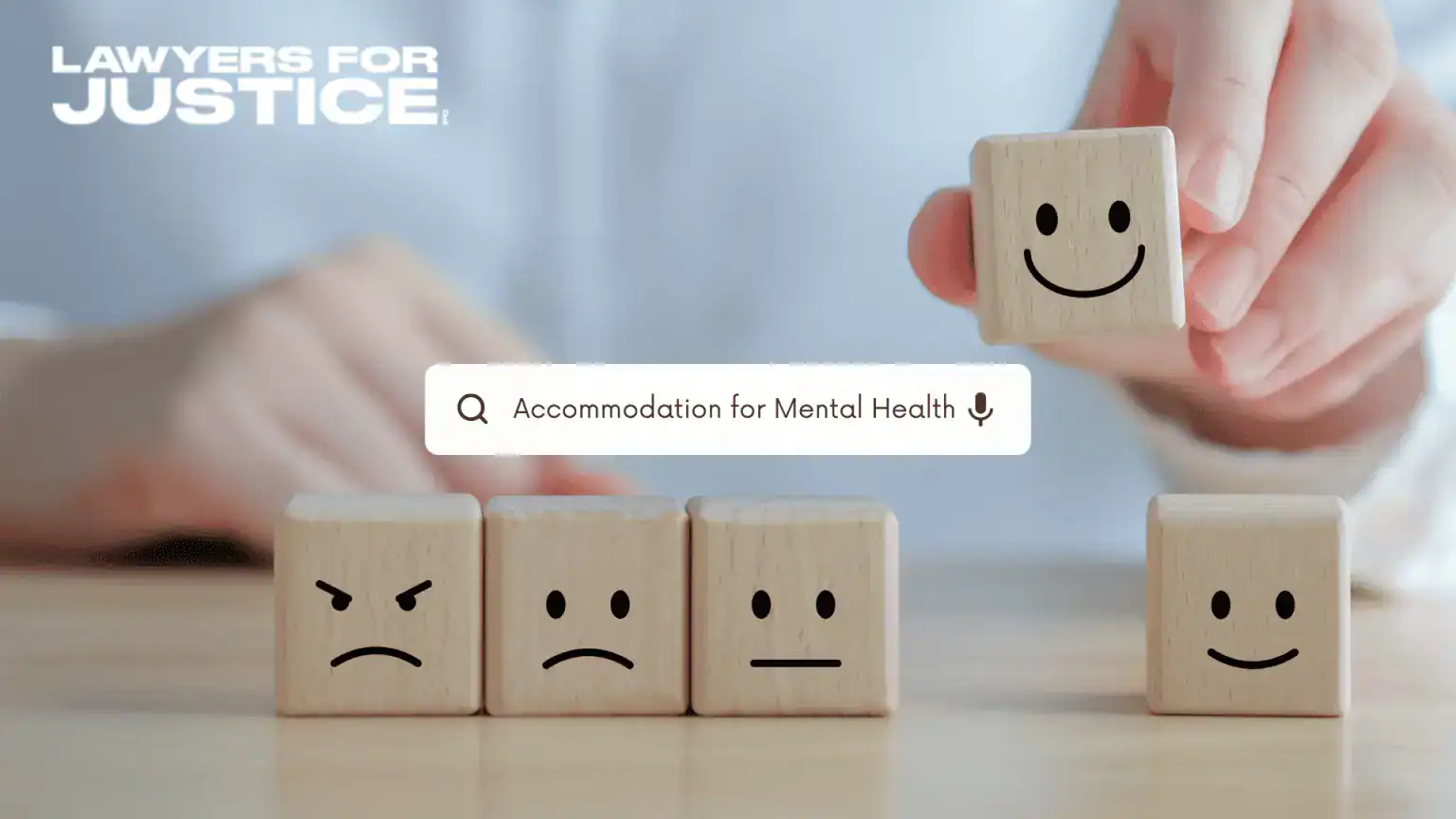Attorney advertisement by Edwin Aiwazian of Lawyers for Justice, P.C., headquartered at 450 N Brand Blvd, Glendale, CA 91203
Mental health has become a significant point of discussion in the workplace due to the growing prevalence of mental health-related issues, like anxiety, depression, and even PTSD. As more employers and places of businesses are increasing their efforts to create a safe and supportive work environment for their employees, many of them are wondering what exactly counts as a reasonable accommodation?
Understanding Reasonable Accommodations
Reasonable mental health accommodations are referred to as a modification or adjustment to a job position, work environment, or workplace policy that are designed to reduce any barriers that may interfere with an employee’s ability to work productively.
For example, an office job that allows workers the option to work from home is a common example of making a reasonable accommodation for those struggling with a mental health condition.
The Legal Framework for Mental Health Accommodations
Employers are required to make reasonable accommodations for employees with qualifying mental health conditions under federal law. The legal framework governing accommodations is broad and complex.
The Americans with Disabilities Act (ADA) has defined a disability as a physical or mental impairment that significantly limits one’s ability to perform a life activity. Mental health conditions such as depression, anxiety, and PTSD can qualify under the ADA. Employers with 15 or more employees are required to provide reasonable accommodations as long as doing so does not impose an ‘undue hardship’ on the employer.
Examples of Reasonable Accommodations for Mental Health
While the applicability of certain accommodations can vary depending on the nature of the job and the employee’s needs, there are a number of reasonable accommodations that can be made for employees who have mental health conditions. Some of the most common examples include:
- Flexible Work Schedules – Allowing employees to adjust their start and end times, or to take breaks as needed, can help them manage symptoms such as fatigue or medication side effects.
- Remote Work or Hybrid Arrangements – Working from home can reduce stress-related issues that arise when commuting or navigating a challenging office environment.
- Modified Job Duties – Temporarily or permanently reassigning non-essential tasks that exacerbate an employee’s condition can help them focus on core responsibilities.
- Quiet Workspace – Providing a quiet, low-stimulation environment can benefit employees with conditions like anxiety or PTSD.
- Extended Leave or Time Off – Granting additional time off for therapy, medical appointments, or recovery can be crucial for employees managing mental health conditions.
- Support Animals – Allowing a service or emotional support animal in the workplace, if feasible, can provide comfort and stability for some employees.
- Access to Mental Health Resources – Providing information about employee assistance programs (EAPs), counseling services, or mental health hotlines can be a valuable accommodation.
How To Request and Implement Accommodations
In order for employees to request accommodations for their mental health, they must disclose their condition to their employer and provide them enough information to not only justify the accommodation, but to figure out the best method to implement it. Depending on the nature of the mental health condition, employers may request medical documentation to verify the need for the accommodation and determine a reasonable way to implement it.
Should the accommodation be challenging to implement due to the nature of the job or the condition itself, it is highly recommended for both employees and employers to remain in constant communication to make any necessary adjustments; both parties should ensure that the accommodation is feasible for each of them.
The Best Practices for Employers
For employers, trying to accommodate the needs of their employees may be a challenge depending on the nature of the company and the tasks required. However, mental health accommodations can be made without sacrificing efficiency or productivity.
For example, educating management and any staff in a supervisory role to recognize signs of mental health, and the appropriate means to handle it, is a great way to create a supportive work environment.
Additionally, establishing clear written policies that are not subject for interpretation can allow employees to ask and seek aid when they need it the most. If there are any complex or confusing scenarios that arise, it is always recommended to seek advice and information from organizations and legal experts.
What To Do If Your Employer Denies A Mental Health Accommodation
If an employer unjustly denies a mental health accommodation request, it is important to keep a detailed record of communication, such as dates, times, topic of discussion, their reasoning for denial, and any supporting medical documentation that would support the request. Once all the necessary evidence has been gathered, workers should contact an employment attorney who can get them the help they deserve.
Lawyers for Justice, P.C. is a law firm that specializes in employment law and fights for those who experience injustice in the workplace. With years of experience fighting against Fortune 500 companies, the legal team at Lawyers for Justice, P.C. can get you the justice and compensation you deserve. To schedule a free case consultation, call (818) JUSTICE today!
Mental health has become a significant point of discussion in the workplace due to the growing prevalence of mental health-related issues, like anxiety, depression, and even PTSD. As more employers and places of businesses are increasing their efforts to create a safe and supportive work environment for their employees, many of them are wondering what exactly counts as a reasonable accommodation?
Attorney advertisement by Edwin Aiwazian of Lawyers for Justice, P.C., headquartered at 450 N Brand Blvd, Glendale, CA 91203
Think you deserve justice?
-
Get a Free Case Evaluation
-
Retain Service with No Upfront Cost
-
Get the Justice You Deserve
-
No Win, No Pay









